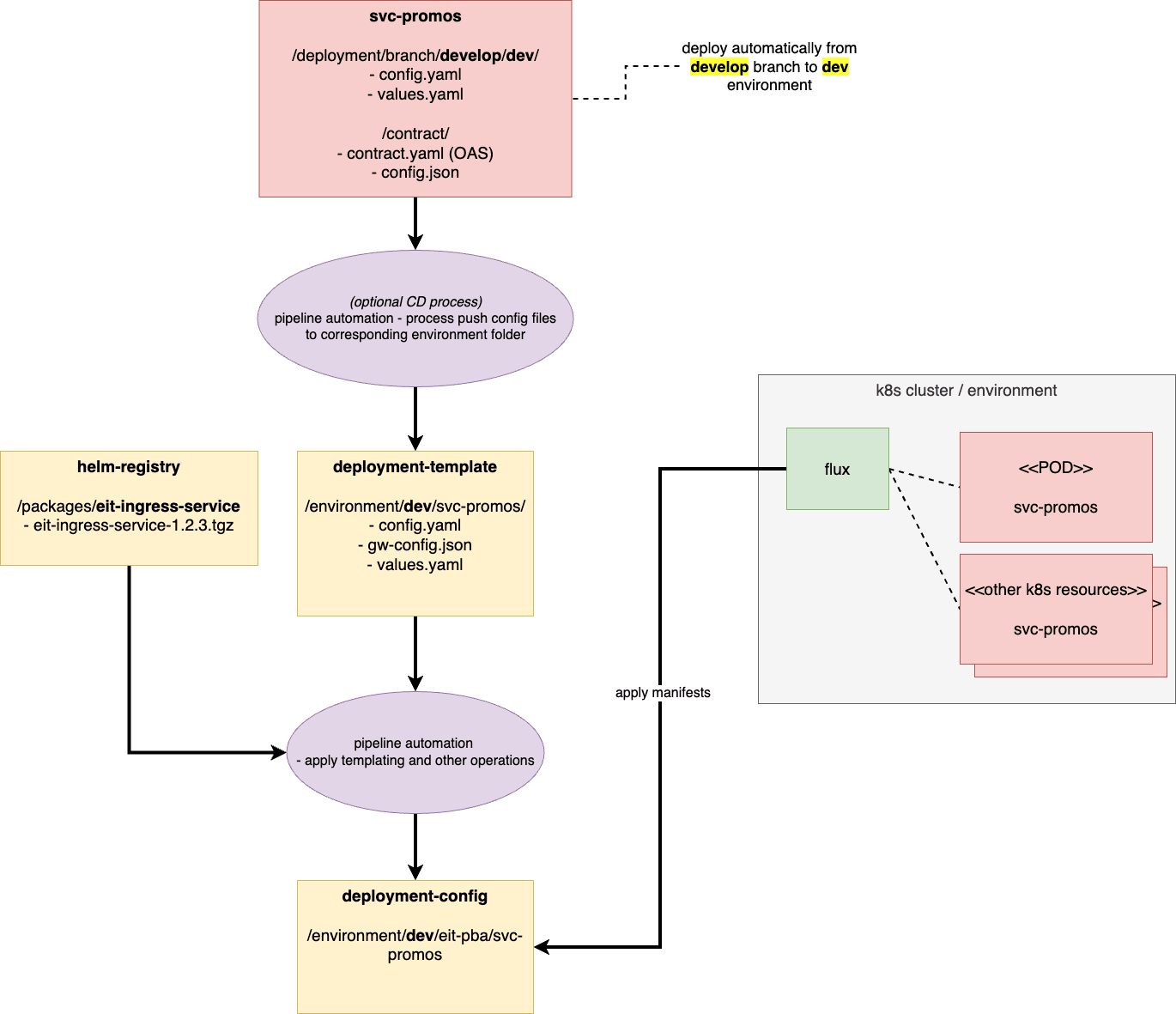Deployment
Introduction
Overview of the deployment process
Overview
The deployment process in the EIT platform follows a GitOps approach, ensuring that infrastructure and application deployment definitions are stored in Git repositories, serving as the single source of truth. This approach provides a declarative, version-controlled deployment pipeline, enhancing consistency and auditability.
The key repositories involved in the deployment process are:
- deployment-config:
Stores rendered Kubernetes manifests and configuration files, acting as the source of truth for deployment automation tools like Flux or ArgoCD. - deployment-templates:
Simplifies deployment configuration by providing Helm templates and gateway configurations. - helm-charts:
Defines and manages reusable Helm charts for backend services. - helm-registry:
Serves as an artifact repository for storing versioned Helm chart packages.
Flow diagram

Summary
The deployment process in the EIT platform is designed to be:
- Scalable and Consistent:
Leveraging GitOps for reliable, repeatable deployments across multiple environments. - Developer-Friendly:
Predefined templates and Helm charts simplify deployment, allowing teams to focus on business logic. - Automated and Governed:
CI/CD pipelines enforce PR policies and automate deployments, ensuring quality and compliance.
By following these practices, the platform ensures efficient and reliable software delivery.